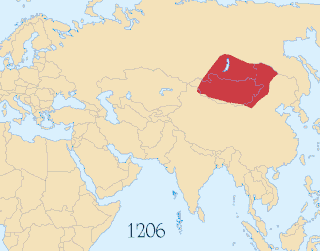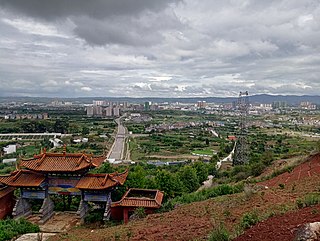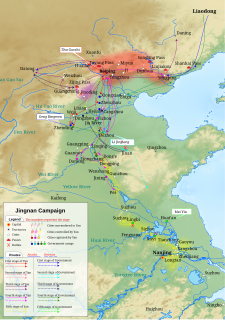This article is an orphan, as no other articles link to it . Please introduce links to this page from related articles ; try the Find link tool for suggestions. (February 2019) |
Ziqi Kingdom 自杞国 | |||||||||
|---|---|---|---|---|---|---|---|---|---|
| 1100–1259 | |||||||||
 Ziqi Kingdom in 1200 | |||||||||
| Status | Kingdom | ||||||||
| Capital | Jilu (near Luxi) | ||||||||
| Government | Monarchy | ||||||||
| King | |||||||||
• 1100 - 1136 | Ziqi | ||||||||
• 1136 - 1158 | Awei | ||||||||
• 1158 - 1162 | Asi | ||||||||
• 1176 - 1205 | Axie | ||||||||
• 1205 - 1240 | Amo | ||||||||
• 1240 - 1259 | Nuoju | ||||||||
| Historical era | Song Dynasty | ||||||||
• Established | 1100 | ||||||||
• Disestablished | 1259 | ||||||||
| |||||||||
The Ziqi Kingdom was a kingdom established by Wuman (ancestors of Yi people) in southwestern China during the Song dynasty. The territory of the Ziqi Kingdom included parts of modern-day Guizhou, Guangxi and Yunnan provinces of China.

The Yi or Nuosuo people are an ethnic group in China, Vietnam, and Thailand. Numbering 8 million, they are the seventh largest of the 55 ethnic minority groups officially recognized by the People's Republic of China. They live primarily in rural areas of Sichuan, Yunnan, Guizhou, and Guangxi, usually in mountainous regions. Liangshan Yi Autonomous Prefecture is the prefecture containing the largest population of Yi people within mainland China, with 2 million Yi people in the region. For other countries, as of 1999, there were 3,300 "Lô Lô" people living in the Hà Giang, Cao Bằng, and Lào Cai provinces in northeastern Vietnam.

The Song dynasty was an era of Chinese history that began in 960 and lasted until 1279. The dynasty was founded by Emperor Taizu of Song following his usurpation of the throne of the Later Zhou, ending the Five Dynasties and Ten Kingdoms period. The Song often came into conflict with the contemporary Liao and Western Xia dynasties in the north. It was eventually conquered by the Mongol-led Yuan dynasty. The Song government was the first in world history to issue banknotes or true paper money nationally and the first Chinese government to establish a permanent standing navy. This dynasty also saw the first known use of gunpowder, as well as the first discernment of true north using a compass.

Guizhou, is a province of the People's Republic of China located in the southwestern part of the country. Its capital city is Guiyang. Guizhou is a relatively poor and economically undeveloped province, but rich in natural, cultural and environmental resources. Demographically it is one of China's most diverse provinces. Minority groups account for more than 37% of the population.
Ziqi was originally one of 37 tribes of the Wuman people in eastern Yunnan. During the Tang dynasty, they were ruled by the Nanzhao Kingdom. The Nanzhao Kingdom collapsed in 937, and Yunnan entered a chaotic transitional period between the Nanzhao and Dali kingdoms. During this time, Wuman tribes split away from Yunnan and moved eastward. Among them, several small kingdoms were established, and Ziqi was the strongest one, gradually defeating others and controlling a large area between Yunnan and the Red River. [1] [2]

The Tang dynasty or the Tang Empire was an imperial dynasty of China, preceded by the Sui dynasty and followed by the Five Dynasties and Ten Kingdoms period. Historians generally regard the Tang as a high point in Chinese civilization, and a golden age of cosmopolitan culture. Tang territory, acquired through the military campaigns of its early rulers, rivaled that of the Han dynasty. The Tang capital at Chang'an was the most populous city in the world in its day.

The Red River, also known as the Hồng Hà and Sông Cái (lit. "Mother River") in Vietnamese and the Yuan River in Chinese, is a river that flows from Yunnan in Southwest China through northern Vietnam to the Gulf of Tonkin. According to C. Michael Hogan, the associated Red River Fault was instrumental in forming the entire South China Sea at least as early as 37 million years before present.
At this time, China proper was ruled by the Song dynasty. Ziqi then became one of Song's tributary states. People in the Song dynasty called them Xi Nan Yi ("Southwestern Barbarians") along with several other tribes. When Jurchens attacked the Song from the north, Ziqi became an important source of war horses for the Song. [3] [4] During the reign of Axie (1176 - 1205), Ziqi defeated the Dali Kingdom, Luodian and Annan (Lý) in a series of battles and became the strongest power in southwestern China. [5]

China proper, Inner China or the Eighteen Provinces was a term used by Western writers on the Manchu Qing dynasty to express a distinction between the core and frontier regions of China. There is no fixed extent for China proper, as many administrative, cultural, and linguistic shifts have occurred in Chinese history. One definition refers to the original area of Chinese civilization, the Central Plain ; another to the "Eighteen Provinces" system of the Qing dynasty. There is no direct translation for "China proper" in the Chinese language due to differences in terminology used by the Qing to refer to the regions and the expression is controversial among scholars, particularly in China, due to national territorial claims.

The Dali Kingdom, also known as the Dali State, was a kingdom situated in modern Yunnan province, China from 937 until 1253 when it was conquered by the Mongols. Its kings continued to administer the area as Mongol vassals until the Ming conquest of Yunnan.

The Lý dynasty, sometimes known as the Later Lý dynasty, was a Vietnamese dynasty that began in 1009 when emperor Lý Thái Tổ overthrew the Early Lê dynasty and ended in 1225, when the empress Lý Chiêu Hoàng was forced to abdicate the throne in favor of her husband, Trần Cảnh. During emperor Lý Thánh Tông's reign, the official name of Vietnam became Đại Việt. Domestically, while the Lý emperors were devout to Buddhism, the influence of Confucianism from China was on the rise, with the opening of the first University in Vietnam in 1070 for selection of civil servants who are not from noble families.The first imperial examination was run in 1075 and Lê Văn Thịnh became the first Trạng Nguyên(Zhuangyuan) of Vietnam. Politically, they created a system of administration based on the rule of law rather than on autocratic principles. The fact that they chose the Đại La Citadel as the capital showed that they held onto power due to economic strength and were liked by their subjects rather than by military means like prior dynasties. Some of the noble scholar such as Lê Văn Thịnh, Bùi Quốc Khái, Doãn Tử Tư, Đoàn Văn Khâm, Lý Đạo Thành, Tô Hiến Thành made vast contributions culturally and politically, allowing the dynasty to flourish for 216 years.
In 1253, the Mongol Empire annexed the Dali Kingdom and started to invade Ziqi. The Mongols found many maps of Ziqi in Dali and planned strategies based on those maps. With reinforcements from the Song, Ziqi fought hard and caused remarkable casualties to the Mongols, [6] but it was eventually conquered by Mongols in 1259. The territory of Ziqi suffered a massacre by the Mongols. [7]

The Mongol Empire existed during the 13th and 14th centuries and was the largest contiguous land empire in history. Originating in the steppes of Central Asia, the Mongol Empire eventually stretched from Eastern Europe and parts of Central Europe to the Sea of Japan, extending northwards into Siberia, eastwards and southwards into the Indian subcontinent, Indochina and the Iranian Plateau; and westwards as far as the Levant and the Carpathian Mountains.





